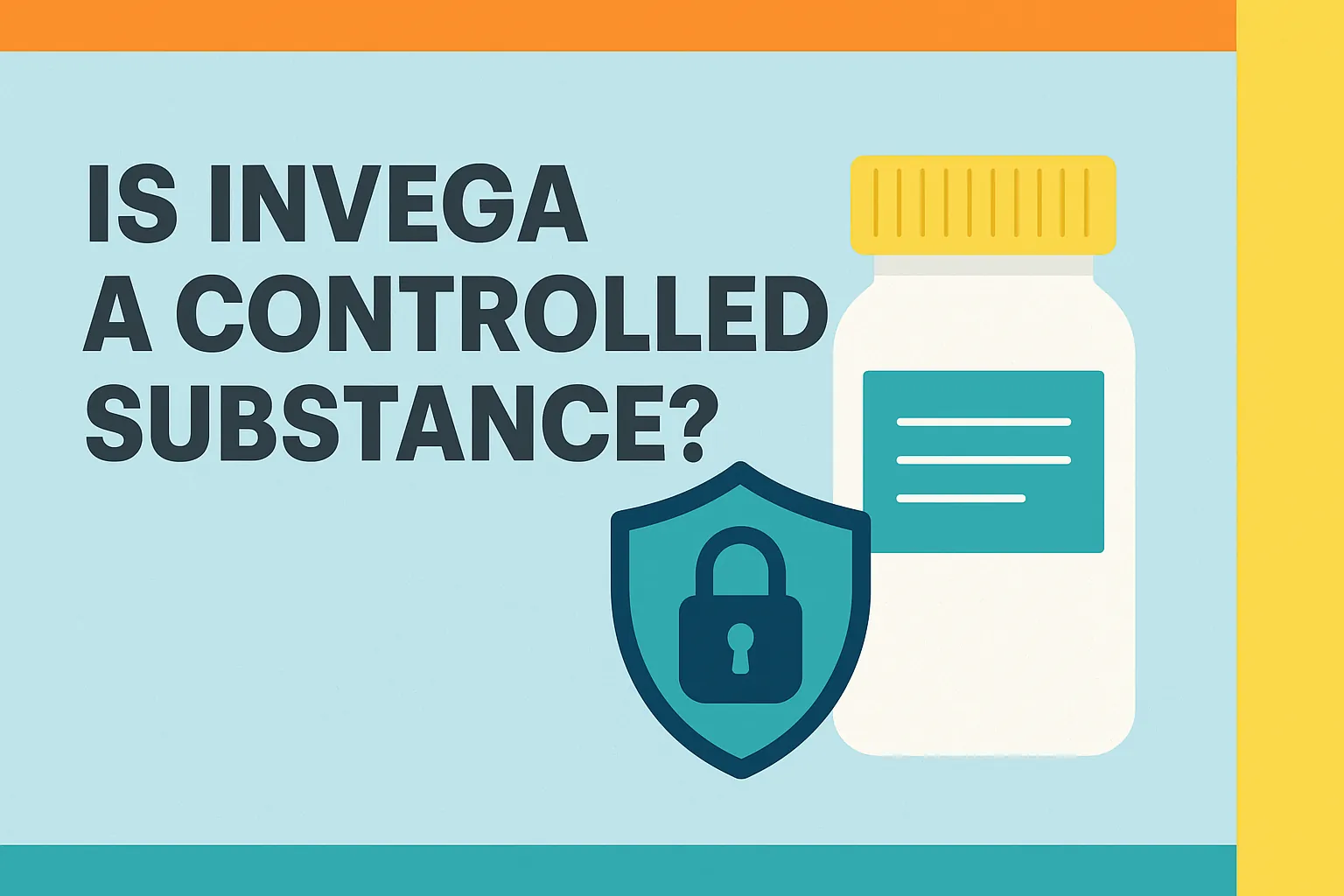Is Invega a controlled substance?

Controlled substances are scheduled under the U.S. Controlled Substances Act based on medical use and abuse potential. Invega (paliperidone) is not a controlled substance.
It has not been formally studied for abuse, tolerance, or physical dependence, so its potential for misuse is uncertain. If you or someone you know shows signs of tolerance, dose escalation, or drug‑seeking behavior, contact your healthcare provider.
What class of drug is Invega?
Invega contains paliperidone, a second‑generation (atypical) antipsychotic.
What is Invega used for?
- Schizophrenia in adults and adolescents (≥12 years)
- Schizoaffective disorder in adults (alone or with mood stabilizers/antidepressants)
- Off‑label treatment for bipolar disorder
Available as extended‑release tablets and long‑acting injectables (monthly, every 3 months, or every 6 months).
How does Invega work?
Paliperidone modulates serotonin and dopamine receptors, improving both positive and negative symptoms of schizophrenia by rebalancing these neurotransmitters.
What are the side effects of Invega?
Common (clinical trials):
- Extrapyramidal symptoms (restlessness, tremor, stiffness)
- Akathisia (urge to move)
- Sleepiness or sedation
- Weight gain and metabolic changes
- Increased heart rate
- Anxiety
- Headache
Other possible:
- Changes in lipids or blood sugar
- Nasopharyngitis
- Constipation, abdominal pain, drooling, dry mouth
- Injection site reactions (injectable forms)
Rare but serious:
- Increased mortality in elderly patients with dementia‑related psychosis
- QT prolongation and arrhythmia risk
- Severe allergic reactions (hives, swelling, breathing difficulty)
- Tardive dyskinesia (involuntary movements)
- Neuroleptic malignant syndrome (fever, rigidity, confusion)
- Priapism
- Orthostatic hypotension
- Low white blood cell counts
What drug interactions are there with Invega?
- Other QT‑prolonging medications
- Alcohol and central nervous system depressants
- Dopamine agonists (levodopa)
- Strong CYP3A4/P‑gp inducers (carbamazepine, rifampin, St. John’s Wort)
Does Invega have a Boxed Warning?
Yes. Antipsychotics, including Invega, carry an FDA boxed warning for increased risk of death in elderly patients with dementia‑related psychosis.
What should you tell your doctor before starting Invega?
- Heart conditions (arrhythmias, blood pressure issues, past heart attack)
- Diabetes or high blood sugar
- Kidney disease or impairment
- Lewy body dementia or Parkinson’s disease
- Seizure history
- Difficulty swallowing
- High cholesterol
- Pregnancy or plans to become pregnant (risk of newborn extrapyramidal/withdrawal symptoms)
- Breastfeeding (unknown if passed into milk)
Can Invega cause erectile dysfunction?
Erectile dysfunction was not reported in trials, but elevated prolactin may contribute. Priapism (painful erection >4 hours) can occur and requires immediate medical attention.
Is Invega safe to use if you are pregnant?
The risk of birth defects is unclear. Third‑trimester exposure to antipsychotics can cause newborn withdrawal or movement disorders. Consider enrolling in the pregnancy registry by calling 866‑961‑2388.
Related Medications
- Abilify (aripiprazole)
- Risperdal (risperidone)
- Seroquel (quetiapine)
- Vraylar (cariprazine)
- Zyprexa (olanzapine)
- Invega Sustenna / Trinza / Hafyera (paliperidone palmitate)






